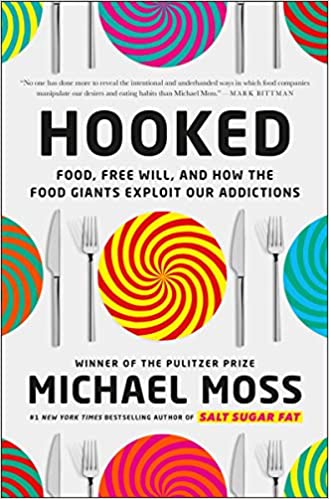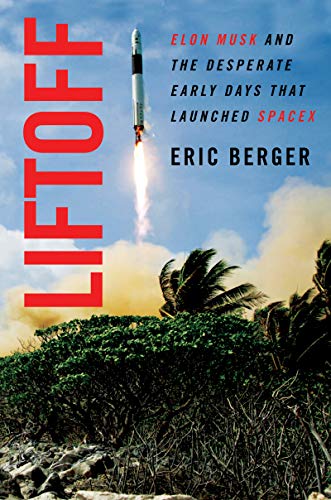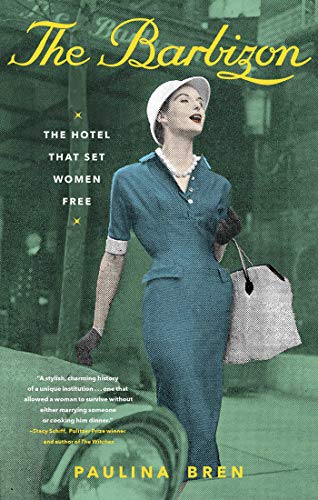
HOOKED
by Michael Moss
From the #1 New York Times bestselling author of Salt Sugar Fat comes a powerful exposé of how the processed food industry exploits our evolutionary instincts, the emotions we associate with food, and legal loopholes in their pursuit of profit over public health.
“The processed food industry has managed to avoid being lumped in with Big Tobacco—which is why Michael Moss’s new book is so important.”—Charles Duhigg, author of The Power of Habit
Everyone knows how hard it can be to maintain a healthy diet. But what if some of the decisions we make about what to eat are beyond our control? Is it possible that food is addictive, like drugs or alcohol? And to what extent does the food industry know, or care, about these vulnerabilities? In Hooked, Pulitzer Prize–winning investigative reporter Michael Moss sets out to answer these questions—and to find the true peril in our food.
Moss uses the latest research on addiction to uncover what the scientific and medical communities—as well as food manufacturers—already know: that food, in some cases, is even more addictive than alcohol, cigarettes, and drugs. Our bodies are hardwired for sweets, so food giants have developed fifty-six types of sugar to add to their products, creating in us the expectation that everything should be cloying; we’ve evolved to prefer fast, convenient meals, hence our modern-day preference for ready-to-eat foods. Moss goes on to show how the processed food industry—including major companies like Nestlé, Mars, and Kellogg’s—has tried not only to evade this troubling discovery about the addictiveness of food but to actually exploit it. For instance, in response to recent dieting trends, food manufacturers have simply turned junk food into junk diets, filling grocery stores with “diet” foods that are hardly distinguishable from the products that got us into trouble in the first place. As obesity rates continue to climb, manufacturers are now claiming to add ingredients that can effortlessly cure our compulsive eating habits.
A gripping account of the legal battles, insidious marketing campaigns, and cutting-edge food science that have brought us to our current public health crisis, Hooked lays out all that the food industry is doing to exploit and deepen our addictions, and shows us why what we eat has never mattered more.

WOMEN IN WHITE COATS
by Olivia Campbell
For fans of Hidden Figures and Radium Girls comes the remarkable story of three Victorian women who broke down barriers in the medical field to become the first women doctors, revolutionizing the way women receive health care.
In the early 1800s, women were dying in large numbers from treatable diseases because they avoided receiving medical care. Examinations performed by male doctors were often demeaning and even painful. In addition, women faced stigma from illness—a diagnosis could greatly limit their ability to find husbands, jobs or be received in polite society.
Motivated by personal loss and frustration over inadequate medical care, Elizabeth Blackwell, Elizabeth Garrett Anderson and Sophia Jex-Blake fought for a woman’s place in the male-dominated medical field. For the first time ever, Women in White Coats tells the complete history of these three pioneering women who, despite countless obstacles, earned medical degrees and paved the way for other women to do the same. Though very different in personality and circumstance, together these women built women-run hospitals and teaching colleges—creating for the first time medical care for women by women.
With gripping storytelling based on extensive research and access to archival documents, Women in White Coats tells the courageous history these women made by becoming doctors, detailing the boundaries they broke of gender and science to reshape how we receive medical care today.

LIFTOFF
by Eric Berger
“This is as important a book on space as has ever been written and it’s a riveting page-turner, too.” —Homer Hickam, #1 New York Times Bestselling Author of Rocket Boys
The dramatic inside story of the historic flights that launched SpaceX—and Elon Musk—from a shaky startup into the world’s leading-edge rocket company
SpaceX has enjoyed a miraculous decade. Less than 20 years after its founding, it boasts the largest constellation of commercial satellites in orbit, has pioneered reusable rockets, and in 2020 became the first private company to launch human beings into orbit. Half a century after the space race it is private companies, led by SpaceX, standing alongside NASA pushing forward into the cosmos, and laying the foundation for our exploration of other worlds.
But before it became one of the most powerful players in the aerospace industry, SpaceX was a fledgling startup, scrambling to develop a single workable rocket before the money ran dry. The engineering challenge was immense; numerous other private companies had failed similar attempts. And even if SpaceX succeeded, they would then have to compete for government contracts with titans such as Lockheed Martin and Boeing, who had tens of thousands of employees and tens of billions of dollars in annual revenue. SpaceX had fewer than 200 employees and the relative pittance of $100 million in the bank.
In Liftoff, Eric Berger, senior space editor at Ars Technica, takes readers inside the wild early days that made SpaceX. Focusing on the company’s first four launches of the Falcon 1 rocket, he charts the bumpy journey from scrappy underdog to aerospace pioneer. We travel from company headquarters in El Segundo, to the isolated Texas ranchland where they performed engine tests, to Kwajalein, the tiny atoll in the Pacific where SpaceX launched the Falcon 1. Berger has reported on SpaceX for more than a decade, enjoying unparalleled journalistic access to the company’s inner workings. Liftoff is the culmination of these efforts, drawing upon exclusive interviews with dozens of former and current engineers, designers, mechanics, and executives, including Elon Musk. The enigmatic Musk, who founded the company with the dream of one day settling Mars, is the fuel that propels the book, with his daring vision for the future of space.
Filled with never-before-told stories of SpaceX’s turbulent beginning, Liftoff is a saga of cosmic proportions.

YOUR BRAIN IS ALWAYS LISTENING
by Daniel G. Amen, MD
New York Times bestselling author Dr. Daniel Amen equips you with powerful weapons to battle the inner dragons that are breathing fire on your brain, driving unhealthy behaviors, and robbing you of joy and contentment.
Your brain is always listening and responding to these hidden influences and unless you recognize and deal with them, they can steal your happiness, spoil your relationships, and sabotage your health. This book will teach you to tame the:
1. Dragons from the Past that ignite your most painful emotions;
2. Negative Thought Dragons that attack you, fueling anxiety and depression;
3. They and Them Dragons, people in your life whose own dragons do battle with yours;
4. Bad Habit Dragons that increase the chances you’ll be overweight, overwhelmed, and an underachiever;
5. Addicted Dragons that make you lose control of your health, wealth, and relationships;
6. Scheming Dragons, advertisers and social media sites that steal your attention.
In Your Brain Is Always Listening, Dr. Daniel Amen shows you how to recognize harmful dragons and gives you the weapons to vanquish them. With these practical tools, you can stop feeling sad, mad, nervous, or out of control and start being happier, calmer, and more in control of your own destiny.

THE BARBIZON
by Paulina Bren
From award-winning author Paulina Bren comes the first history of New York’s most famous residential hotel—The Barbizon—and the remarkable women who lived there.
WELCOME TO NEW YORK’S LEGENDARY HOTEL FOR WOMEN
Liberated from home and hearth by World War I, politically enfranchised and ready to work, women arrived to take their place in the dazzling new skyscrapers of Manhattan. But they did not want to stay in uncomfortable boarding houses. They wanted what men already had—exclusive residential hotels with daily maid service, cultural programs, workout rooms, and private dining.
Built in 1927 at the height of the Roaring Twenties, the Barbizon Hotel was intended as a safe haven for the “Modern Woman” seeking a career in the arts. It became the place to stay for any ambitious young woman hoping for fame and fortune. Sylvia Plath fictionalized her time there in The Bell Jar, and, over the years, its almost 700 tiny rooms with matching floral curtains and bedspreads housed Titanic survivor Molly Brown; actresses Grace Kelly, Liza Minnelli, Ali MacGraw, Jaclyn Smith, Phylicia Rashad, and Cybill Shepherd; writers Joan Didion, Diane Johnson, Gael Greene, and Meg Wolitzer; and many more. Mademoiselle magazine boarded its summer interns there, as did Katharine Gibbs Secretarial School its students and the Ford Modeling Agency its young models. Before the hotel’s residents were household names, they were young women arriving at the Barbizon with a suitcase and a dream.
Not everyone who passed through the Barbizon’s doors was destined for success—for some it was a story of dashed hopes—but until 1981, when men were finally let in, the Barbizon offered its residents a room of their own and a life without family obligations or expectations. It gave women a chance to remake themselves however they pleased; it was the hotel that set them free. No place had existed like it before or has since.
Beautifully written and impeccably researched, The Barbizon weaves together a tale that has, until now, never been told. It is both a vivid portrait of the lives of these young women who came to New York looking for something more, and an epic history of women’s ambition.
Still Hot in Non-Fiction & Biography

HOW TO AVOID A CLIMATE DISASTER
by Bill Gates
#1 NEW YORK TIMES BEST SELLER
In this urgent, authoritative book, Bill Gates sets out a wide-ranging, practical—and accessible—plan for how the world can get to zero greenhouse gas emissions in time to avoid a climate catastrophe.
Bill Gates has spent a decade investigating the causes and effects of climate change. With the help of experts in the fields of physics, chemistry, biology, engineering, political science, and finance, he has focused on what must be done in order to stop the planet’s slide to certain environmental disaster. In this book, he not only explains why we need to work toward net-zero emissions of greenhouse gases, but also details what we need to do to achieve this profoundly important goal.
He gives us a clear-eyed description of the challenges we face. Drawing on his understanding of innovation and what it takes to get new ideas into the market, he describes the areas in which technology is already helping to reduce emissions, where and how the current technology can be made to function more effectively, where breakthrough technologies are needed, and who is working on these essential innovations. Finally, he lays out a concrete, practical plan for achieving the goal of zero emissions—suggesting not only policies that governments should adopt, but what we as individuals can do to keep our government, our employers, and ourselves accountable in this crucial enterprise.
As Bill Gates makes clear, achieving zero emissions will not be simple or easy to do, but if we follow the plan he sets out here, it is a goal firmly within our reach.

DAUGHTERS OF KOBANI
by Gayle Tzemach Lemmon
The extraordinary story of the women who took on the Islamic State and won
“The Daughters of Kobani is an unforgettable and nearly mythic tale of women’s power and courage. The young women profiled in this book fought a fearsome war against brutal men in impossible circumstances–and proved in the process what girls and women can accomplish when given the chance to lead. Brilliantly researched and respectfully reported, this book is a lesson in heroism, sacrifice, and the real meaning of sisterhood. I am so grateful that this story has been told.”—Elizabeth Gilbert, author of Big Magic and Eat, Pray, Love
“Absolutely fascinating and brilliantly written, The Daughters of Kobani is a must-read for anyone who wants to understand both the nobility and the brutality of war. This is one of the most compelling stories in modern warfare.”—Admiral William H. McRaven, author of Make Your Bed
In 2014, northeastern Syria might have been the last place you would expect to find a revolution centered on women’s rights. But that year, an all-female militia faced off against ISIS in a little town few had ever heard of: Kobani. By then, the Islamic State had swept across vast swaths of the country, taking town after town and spreading terror as the civil war burned all around it. From that unlikely showdown in Kobani emerged a fighting force that would wage war against ISIS across northern Syria alongside the United States. In the process, these women would spread their own political vision, determined to make women’s equality a reality by fighting—house by house, street by street, city by city—the men who bought and sold women.
Based on years of on-the-ground reporting, The Daughters of Kobani is the unforgettable story of the women of the Kurdish militia that improbably became part of the world’s best hope for stopping ISIS in Syria. Drawing from hundreds of hours of interviews, bestselling author Gayle Tzemach Lemmon introduces us to the women fighting on the front lines, determined to not only extinguish the terror of ISIS but also prove that women could lead in war and must enjoy equal rights come the peace. In helping to cement the territorial defeat of ISIS, whose savagery toward women astounded the world, these women played a central role in neutralizing the threat the group posed worldwide. In the process they earned the respect—and significant military support—of U.S. Special Operations Forces.
Rigorously reported and powerfully told, The Daughters of Kobani shines a light on a group of women intent on not only defeating the Islamic State on the battlefield but also changing women’s lives in their corner of the Middle East and beyond.

THE BLACK CHURCH
by Henry Louis Gates, Jr
The instant New York Times bestseller and companion book to the PBS series.
“Absolutely brilliant…A necessary and moving work.” —Eddie S. Glaude, Jr., author of Begin Again
“Engaging. . . . In Gates’s telling, the Black church shines bright even as the nation itself moves uncertainly through the gloaming, seeking justice on earth—as it is in heaven.” —Jon Meacham, New York Times Book Review
From the New York Times bestselling author of Stony the Road and one of our most important voices on the African American experience comes a powerful new history of the Black church as a foundation of Black life and a driving force in the larger freedom struggle in America.
For the young Henry Louis Gates, Jr., growing up in a small, residentially segregated West Virginia town, the church was a center of gravity—an intimate place where voices rose up in song and neighbors gathered to celebrate life’s blessings and offer comfort amid its trials and tribulations. In this tender and expansive reckoning with the meaning of the Black Church in America, Gates takes us on a journey spanning more than five centuries, from the intersection of Christianity and the transatlantic slave trade to today’s political landscape. At road’s end, and after Gates’s distinctive meditation on the churches of his childhood, we emerge with a new understanding of the importance of African American religion to the larger national narrative—as a center of resistance to slavery and white supremacy, as a magnet for political mobilization, as an incubator of musical and oratorical talent that would transform the culture, and as a crucible for working through the Black community’s most critical personal and social issues.
In a country that has historically afforded its citizens from the African diaspora tragically few safe spaces, the Black Church has always been more than a sanctuary. This fact was never lost on white supremacists: from the earliest days of slavery, when enslaved people were allowed to worship at all, their meetinghouses were subject to surveillance and destruction. Long after slavery’s formal eradication, church burnings and bombings by anti-Black racists continued, a hallmark of the violent effort to suppress the African American struggle for equality. The past often isn’t even past—Dylann Roof committed his slaughter in the Mother Emanuel AME Church 193 years after it was first burned down by white citizens of Charleston, South Carolina, following a thwarted slave rebellion.
But as Gates brilliantly shows, the Black church has never been only one thing. Its story lies at the heart of the Black political struggle, and it has produced many of the Black community’s most notable leaders. At the same time, some churches and denominations have eschewed political engagement and exemplified practices of exclusion and intolerance that have caused polarization and pain. Those tensions remain today, as a rising generation demands freedom and dignity for all within and beyond their communities, regardless of race, sex, or gender. Still, as a source of faith and refuge, spiritual sustenance and struggle against society’s darkest forces, the Black Church has been central, as this enthralling history makes vividly clear.
